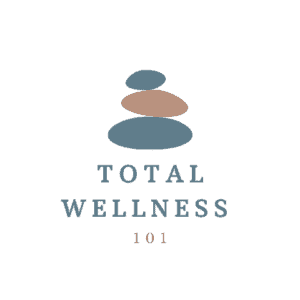Everyone has probably heard enough that it’s important to drink water, but do certain workout supplements require that you consume even more water than normal? With creatine, this may be the case. Creatine is possibly the most popular workout supplement among weightlifters. It is known for improving muscle endurance and increasing muscle size. Creatine uses the water in your blood to help your muscles. However, the majority of individuals don’t drink enough water in general and this can lead to dehydration when you add creatine into the mix.
As a general rule, you will need to drink more than the recommended intake of 8-16 cups (2-4 liters) of water when supplementing with creatine. Though there is not an universally agreed upon amount, it would be good to drink about 4 cups of water (1 liter) more than you normally do if you take creatine. This will help to increase its effectiveness as well as lessen the occurrence of possible side effects of the creatine such as dehydration.
What is Creatine?
Creatine is the most heavily researched workout supplement in the market and has been found to be very beneficial not only to your muscles but also your brain. Some studies have even shown that it can help with depression. Creatine is found naturally in the body and can be consumed in meats as well. It acts like an amino acid and is generally stored in the muscle cells as phosphocreatine. When you lift weights, you deplete your body’s ATP stores which are the muscle’s primary energy source. Creatine helps to quickly replenish these stores resulting in more reps during your exercises. Some potential side-effects are stomach discomfort and water retention because of how it pulls water to the muscles.
Types of Creatine
The most common form that is taken is creatine monohydrate. It is sometimes taken on it’s own but many pre-workout supplements contain it as well. 5-10 grams per day is a normal dosage. Micronized creatine monohydrate will mix better. You also want to be sure to take it with enough water so that it fully dissolves and doesn’t clump too much at the bottom.
A less common form is creatine hydrochloride (HCL). This form is growing in popularity because it offers the same benefits as monohydrate but without some of the side effects. The added hydrochloride group increases its acidity which increases its solubility in fluids. This allows it to dissolve better when mixing, with less product at the bottom of the glass. If you drink the residue at the bottom that isn’t dissolved, it sits in your intestines, absorbing water and creating discomfort. Creatine HCL has also been shown to absorb better in the intestines so it doesn’t require as large of a dose. Typical daily dosage is around 2-4 grams. Creatine HCL is found in Pre-Jym High-Performance Pre-Workout and you will get 15% off with code WELLNESS101 at checkout. Read more about why I recommend the Jym supplement brand here.
Why is More Water Important?
One thing that creatine does is pull water out of the bloodstream and into the muscles. This is one of the reasons that people report fuller muscles or rapid weight gain when they start supplementing with creatine. And this is beneficial because it hydrates the muscle and helps with muscular endurance.
However, if you already don’t drink enough water, creatine use can further dehydrate you because there is even less water available for the rest of the body. And this can worsen more because you will be able to work out harder and longer, thus dehydrating yourself more.
This is why it is so important to first drink an adequate amount of water throughout the day (8-16 cups), and then add about 4 more cups on top of that when you begin creatine supplementation.
If you don’t, you could end up sabotaging your results by not providing your body with enough water causing a lack of energy, cramps, and dizziness.
As an athlete, you should already be drinking more water than the average person because you exert your body more. This is especially true when supplementing with creatine. So be careful to avoid dehydrating yourself unintentionally.
Some ways you can increase your water intake are:
- Setting a goal.
- Using a tracker bottle that keeps you on track throughout the day.
- Setting reminders on your phone or watch every 30-60 minutes to take a drink.
- Replacing sodas with water.
- Using water in your protein shakes.
- Always drinking a cup when you wake up and before you go to bed.
- Using mixing flavor powders or flavored waters (with no added sugar or calories).
Of course the list goes on but these are some that came to mind.
Summary
So is creatine a safe and effective supplement for gym performance and overall health? Yes. This article isn’t meant to scare you, just to make you aware that it is better to drink more water if you are supplementing with creatine. The dehydration effects that can be caused are not extreme but you should always strive to care for your body even if it’s a small effect. I hope this article helped you to learn more about creatine and how much water you should drink when taking it. Good luck!
Recent Posts
In the pursuit of professional success, the modern working professional often finds solace in a cup of coffee or energy drink. Caffeine, the world's most widely consumed psychoactive substance, has...
Strategies for Sales Professionals to Reduce Back Pain and Injuries
In the fast-paced world of sales, professionals often find themselves navigating through long hours, client meetings, and constant travel. Amidst the pursuit of closing deals and meeting targets, the...

